
Quarterly Gou Vaarta about the events and activities organized by GoPals team across India is published in the digital magazine.
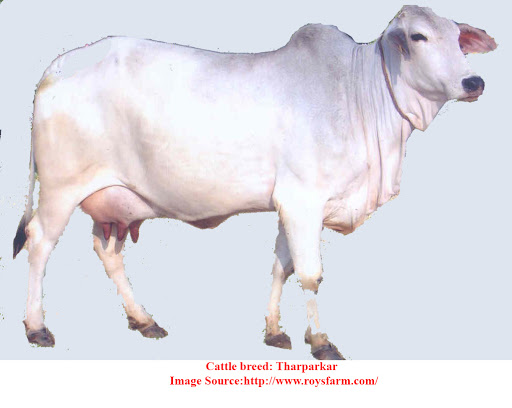
The image source for the 'Tharparkar' breed cow is from RoysFarm
Scientists of IVRE Bareilli carried out tests on native and hybrid cows to understand the impact on milk output in the event of global temperatures rising by 2.5 to 3.5 degree Celsius as part of continuing global warming. The results are encouraging and suggest that Desi Cows have ability to get accustomed to changing environmental factors.
ICAR had entrusted IVRE under the NICRA (National Innovation in Climate Resilient Agriculture) project to research which all Desi and exotic breed of cows will have least impact when global temperatures rise in future.
Dr.AK Tiwari, Head Animal Biotechnology Department, spent seven years researching on genetics of various cow breeds and came to conclusion that Tharparkar and Sahiwal breeds of Desi cows carry a special gene that stand out from others.
Dr.Tiwari’s study provides strong evidence that hybrid cows have lesser capability to stand rise in temperature around them and thus reducing their milking and farm usability.
Tharparkar, a Desi cow breed, commonly found in Rajasthan is known for its high milk yield. Cows from this breed withstand famine like situations easily.
During research, a temperature chamber was constructed and climatic conditions anticipated in 2100 were simulated. Three groups of ten cows each were made viz. Tharparkar, Sahiwal and Cross breed. These groups were exposed to higher temperatures for six hours during the day at high noon times. Changes to cows physiological and psychological behavior were noted. The data such gathered was analyzed and it was concluded that Tharparkar breed has greater capability to withstand higher temperatures without losing productivity.
Reference – About Tharparkar Cow from live hindustan
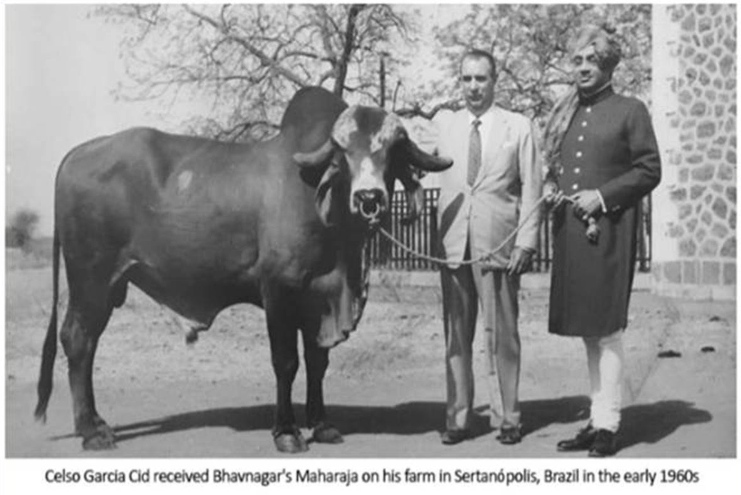
Do you know that Krishna, a Gir bull, from India brought about a white revolution in Brazil?
Krishna and a Gir cow were gifted by Maharaja of Bhavnagar Krishnakumarsinhji Bhavsinhji to a Brazilian livestock entrepreneur Celso Garcia Sid in 1960.
Arrival of Krishna in Brazil started a genetic revolution that made Gir one of the most valued breeds in the Bovine Embryo Market. It is estimated that 80% of Brazilian Gir cattle carry genes from Krishna bull. This breed grew rapidly across Brazil and now contributed to about 80% of the nation’s milk production.
Gir cows brought a white revolution in Brazil. The breed is quite popular in other South American countries also due to its ability to survive in extreme weather and tropical diseases.
Krishna’s carcass was placed in a glass sarcophagus where Celso Garcia Sid has left a sign “Want to meet Gir? Watch me!”
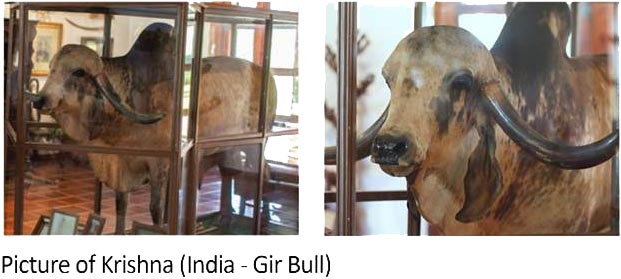
Breeds of Indian cow even found place on coins and postal stamps in Brazil.
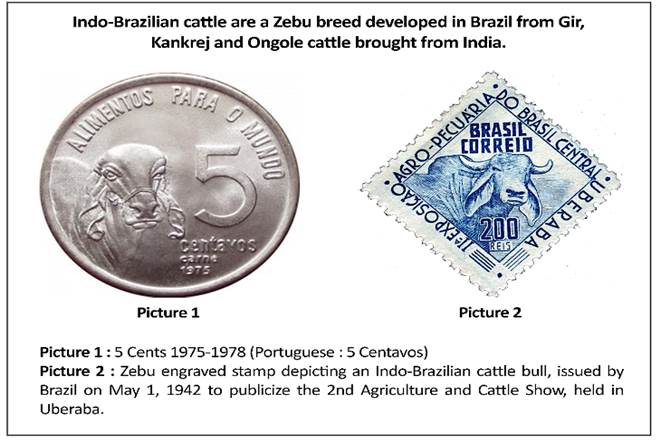
Reference – The Indian Cattle Breed Behind The White Revolution In Brazil
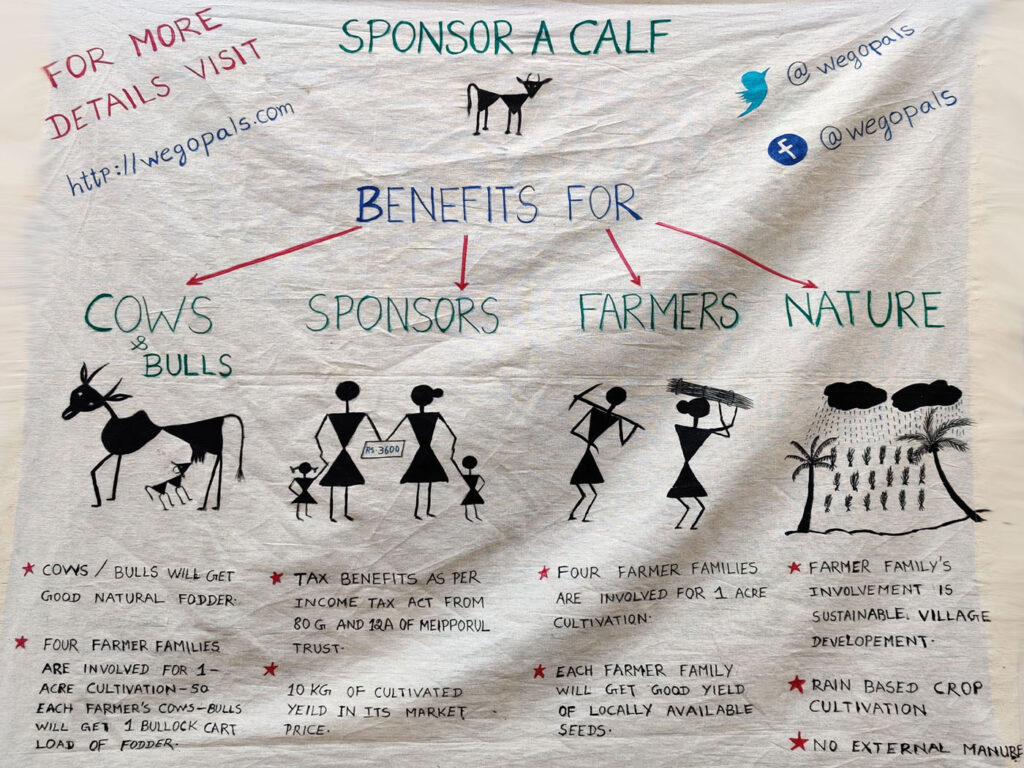
Team GoPals has a good history of working on spreading awareness about desi cows, conducting events and doing some minimal activities with rural areas. Inspired by Prof Vaidyanathan R (IIM Bangalore), team GoPals got into the act of initiating Support A Cowherd(SAC) with the following objectives,
Self Sustainability – With the advent of mechanization of agriculture and the disappearance of common grazing land in villages, it became challenging and not incentivizing for farmers to rear desi cows and bulls. Even the farmers who have desi cows have a very high cost associated with the rearing of desi cows. To alleviate this, team GoPals embarked on the vision of creating self-sustainability through the following means
Creating Fodder Bank – help and facilitate a group of farmers in the region chosen, to identify and lease land to grow local fodder fit for desi cows. This will bring a lot of synergy among farmers and solve the problem of fodder shortage during next summer.
Collaboration among farmers – historically rural India had farming communities having self-help groups to solve some of their common problems which include maintaining grazing lands and creating fodder banks for dry seasons. Our SAC would go a big way in resurrecting the self-help groups and bring back lot of our best practices in agriculture from a long term point of view.
Development of local breed bulls – Advanced scientific techniques like artificial insemination has discouraged farmers from rearing desi breed bulls and often times they consider them as a liability. Whereas breeding desi breed bulls help in supplementing the manure need for our farmlands and helps in natural breeding of desi cows. Hence one of our objectives will be to develop the local breed bulls and develop local cows breeding centers within our help groups.
Making Agriculture Greener – Applying chemicals and fertilizers to our farming lands has resulted in us losing our natural nutrients. Reviving desi cows and bulls will directly help our farmers reduce the cost of farming and create a healthy and wealthy world.
Prevent of migration to Cities from rural India in search of livelihood.
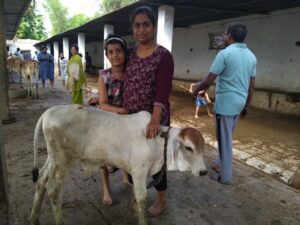
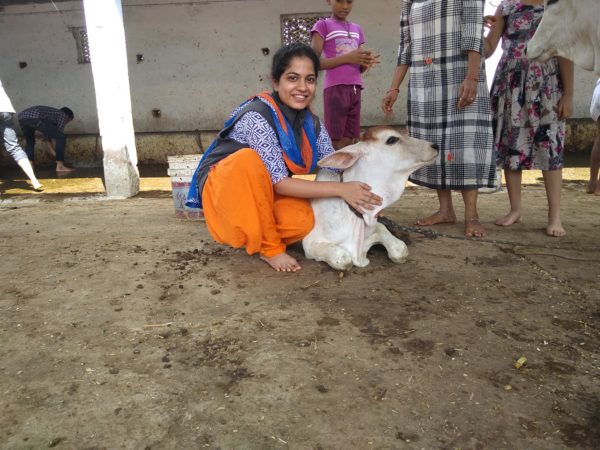
Areas Identified for Support A Cowherd project
Sedam, Gulbarga District – Sedam which is a home for Deoni breed cows is not a strange location for team GoPals. We have had our past events which we have organized with the help of local farmers. Sedam’s farmers depend on cows and follow natural farming practices pre-dominantly. They depend on the monsoon rains.
Our aim through SAC is to develop local Deoni breed cows and develop natural farming techniques in and around. With the help of team GoPals through the SAC initiative, the local farmers have plans to lease land jointly and develop fodder banks for their cattle. In the coming years, we will want to bring more farmers in the adjoining area under SAC’s fold.
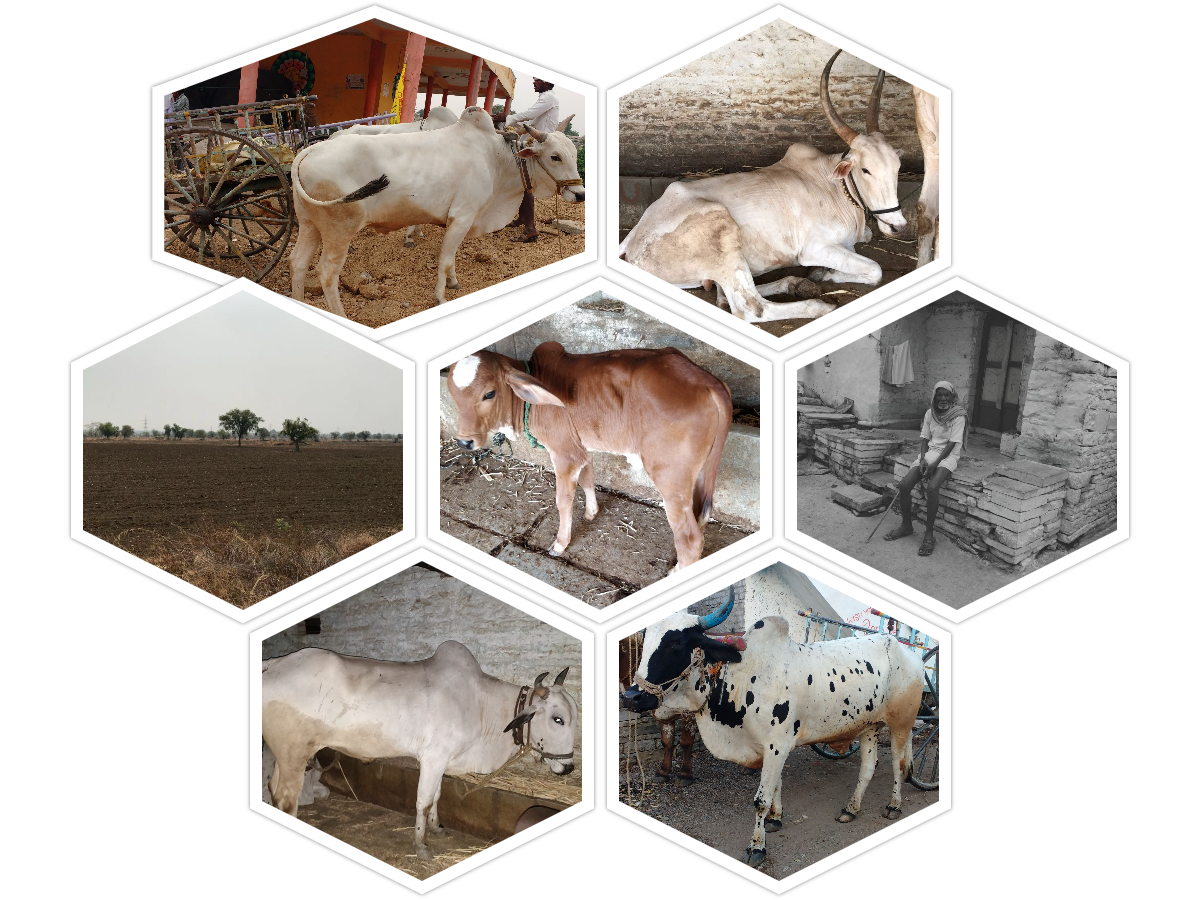
Kodumudi, Tamilnadu – Kodumudi is a temple town in Tamilnadu close to Erode, where our beneficiary has a joint responsibility of rearing Kangeyam breed cows and taking care of paddy cultivation through natural means. This land is irrigation fed and has rich vegetation in and around Kodumudi. The beneficiary has 13 Kangeyam cows and the help from team GoPals has helped them buy fodder for their cows and create perennial source of water for their cattle through borewells. We are in constant touch with them so that we know the progress made. In a longer run, we want to ensure that Kodumudi becomes self-sustaining with respect to fodder for cows.
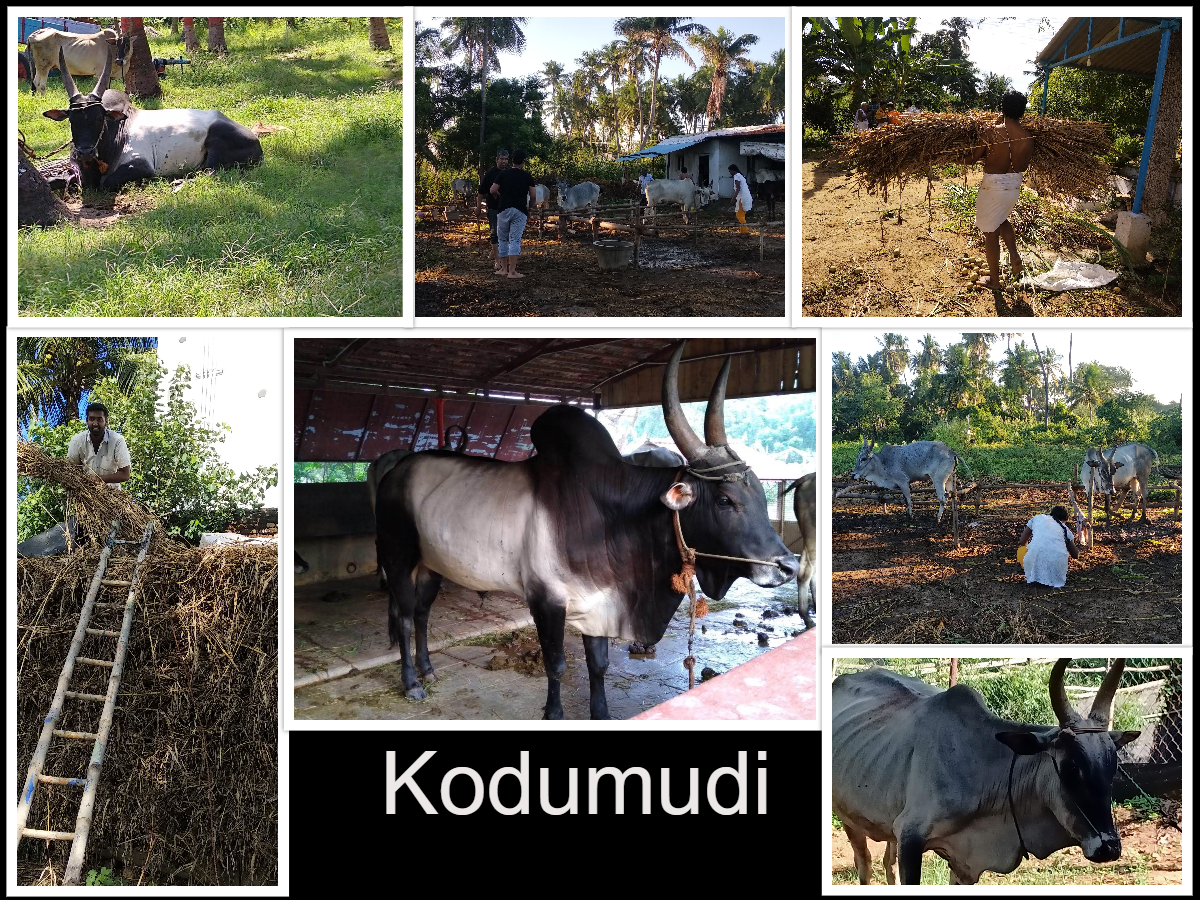
Valliyur, Tamilnadu – Valliyur is a small village down south, where the focus is mainly on growing paddy and pulses like urad dal. Our farmer has established a self-help group with about 20 farmers and is propagating the idea of collaborating amongst them for developing local breed cows and bulls belonging to Umbalachery breed and Nellai Kuttan. With the help of team GoPals , the farmer has been able to focus largely on doing rainwater harvesting, deploying bulls for agriculture purposes within his self-help group. He has been large-hearted to lend his cows and bulls to others in the community for their needs. In the longer run, we plan to have Valliyur as a breeding center for the Umbalachery breed of cows.

Present State of Funding
At the outset, we would like to thank all the well-wishers who contributed towards the SAC initiative. It would not have been possible for us to make this progress without your help. So far we have disbursed an amount of Rs 1,54,800/= to the beneficiaries. We still have funds flowing in and will help the above farmers when in need. If you have contributed for this initiative, and would like to get in touch with the farmers mentioned above, please feel free to get in touch with one of us from team GoPals and we would be more than happy to provide you the contact information.
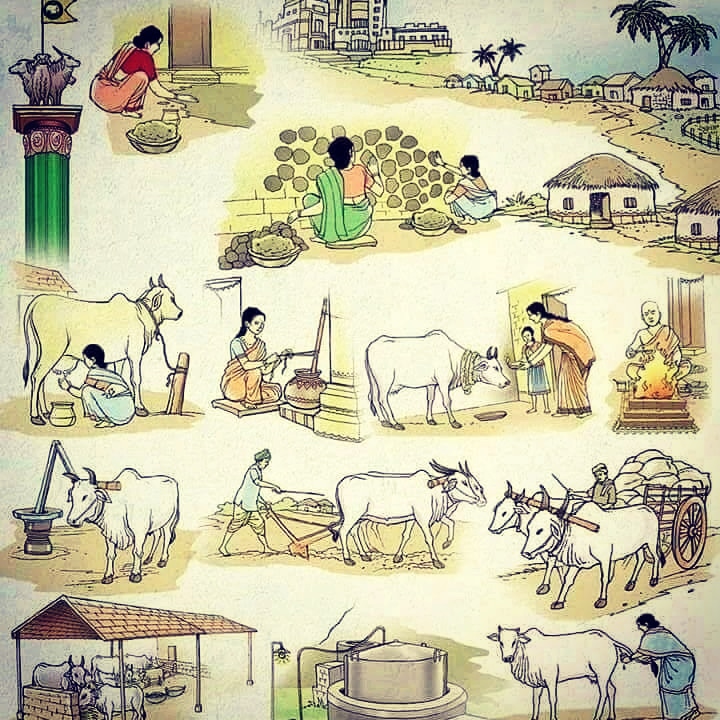
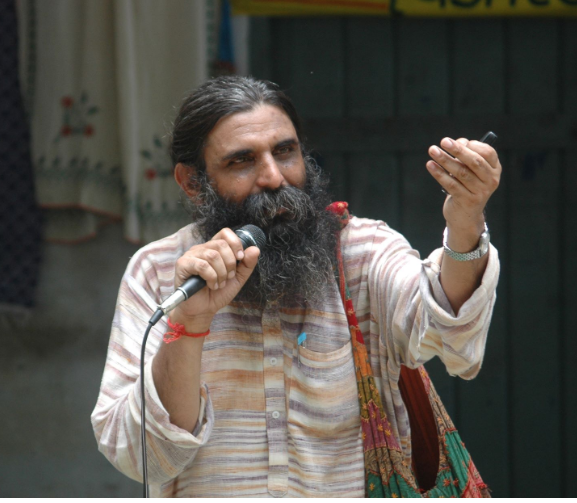
Village for sale!!!
A humble Punjabi, Umendra Dutt, from Firozpur district came across this news in 2002. It was about Harkishanpura, which was put on the block by the villages in the wake of water pollution and fertile land turning futile because of uncontrolled use of chemical fertilizers and insecticides for years.
The news stunned Umendra and compelled him to ponder over where the farming community and practices are heading in the land of Punjab, a state that led the green revolution in the country.
With determination to bring Organic revolution and strike down chemical farming, Umendra established “Kheti Virasat Mission” in 2005,
“My intention and goals were clear that Kheti Virasat Mission will not be affiliated to any political organization. Our mission is not politics but life and sustenance. We herewith strive to preserve our useful traditions” says Umendra.
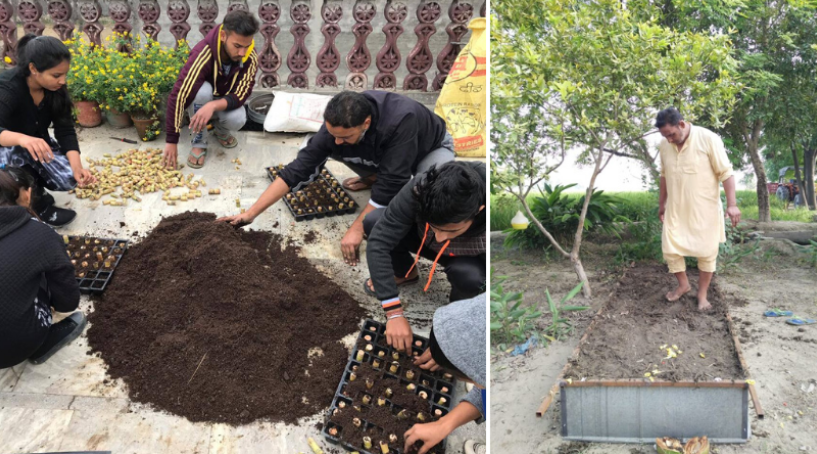
Umendra regularly came across the news and releases related to downfall in agri-economy when he started working as Editor to a Hindi publication “Swadeshi Patrika”. In addition to gaining know-how on agro-economic situation, he connected with experts in this field. Interactions with these intellectuals affirmed his opinion that the country can only survive by returning to natural and organic farming.
He started meeting farmers, counselling them on hazards of chemical farming and its negative impact and outcome on soil, produce and health.
Today, Kheti Virasat Mission has an office in Faridkot district of Punjab. The mission is relentlessly involved in helping farmers understand the goodness of organic farming and disadvantages of using chemicals and insecticides. Experts like Subhash Palekar, Rajendra Singh are regularly invited to conduct workshops and spread awareness on ZBNF and water conservation methods.
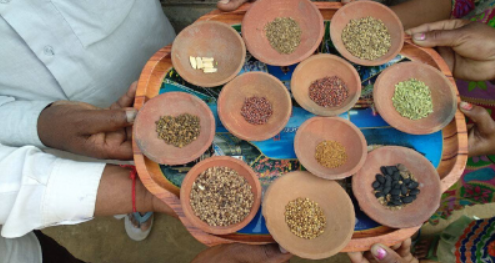
Kheti Virasat Mission has helped women also becoming agriculturists by training them on setting up kitchen gardens at home. 5000+ women have implemented kitchen garden so far in 5 districts of Punjab. The mission insists in harvesting from desi seeds and plans to form a desi seed bank exclusively for kitchen gardening needs.
Umedra is active on social media as well and can be reached on,
Kheti Virasat Mission
Tel: +91 01635 503415
Email | Website | Blog | Facebook
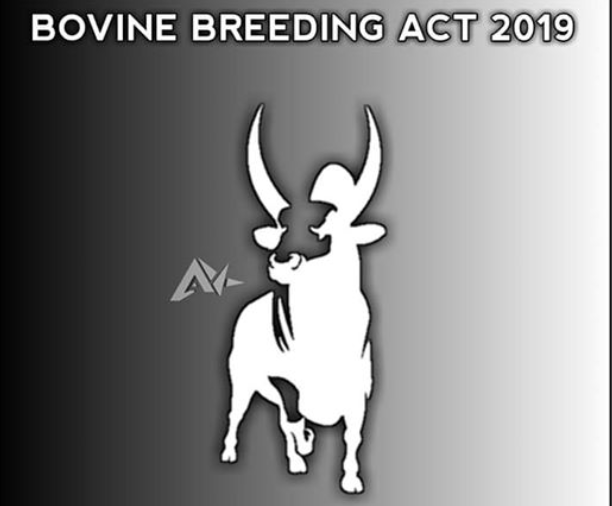
The state of Tamil Nadu has recently brought an act Tamil Nadu Bovine Breeding at 2019 to regulate Bovine Breeding and to prescribe standards for frozen semen production and artificial insemination. Provisions in this act make it harder to raise non.castrated indigenous bulls.
Following are some of the provisions in the act-
There is a growing unrest in farming community of Tamil Nadu who are worried that the state government wants to check what kind of indigenous bulls are being raised by the farmers. The provision of re-registering the bull every two years or cough up fine of rupees 50000 failing to register is adding insult to the injury.
Though the selective breeding of cows is profitable, veterinarians have raised questions over the ethical aspect, saying while the state has no shortage of milk production, bulls might go extinct.
Artificial Insemination – Privatization on cards?
Usually, artificial insemination is carried out with semen having both X and Y chromosomes. But using the sex-sorted semen, which has only X chromosome sperm, cow owners can enhance the possibilities of the birth of female calves.
Karthikeya Sivasenapathy, managing trustee, Senapathy Kangeyam Cattle Research Foundation said the move is the first step towards privatizing the animal husbandry department.
“Sex-sorted semen is produced by a monopolist company called ABS Genus, based in the US. In order to bring the company to the state, the state government brought Bovine Breeding Act, 2019. Under this act, no other company can produce semen. Tamil Nadu has about 80 lakh cows. They should be artificially inseminated every year. If one injection costs ₹2,000, then calculate the cost for 80 lakh cows (₹1,600 crore). This is purely business,” he stressed.
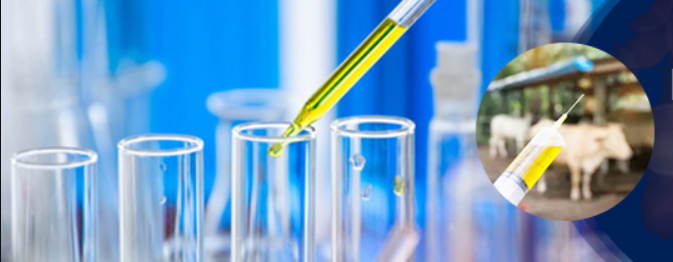
Other side of the coin
Sources in government have justified the provisions in the act saying there was no legal framework that prescribed standards for frozen semen production and artificial insemination.
There have been rampant violations in cross-breeding through artificial insemination and Implementation of this act will help regulate bovine breeding.
Official sources pointed out that during cross-breeding with Jersey or Holstein Friesian frozen semen, the exotic breed blood level should not exceed 50 per cent. “But in reality, the exotic breed blood level in cows reaches between 60 and to 62.5 per cent. Such a high level may lead to serious complications,” said the sources.
Senior officials said frozen semen straws would continue to be produced by the government and there was no proposal to involve private companies in it.
References –
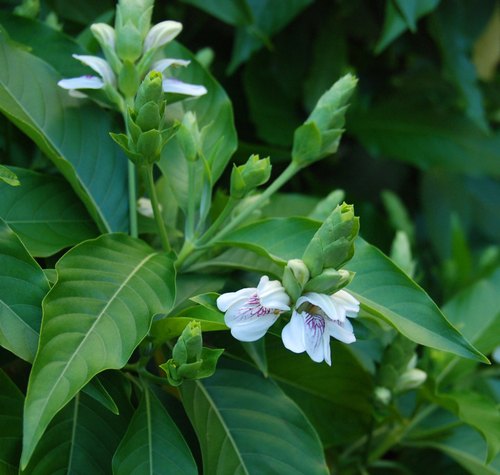
Botanical Name: Justicia adhatoda
Part Used: Leaf and root
Ideal place for planting: Fence area
Therapeutic Uses: Asthma, Cough, Fever
Vasa, Vasaka, Adusa, Arusa, Adhatoda or Malabar Nut is a very well-known medicinal herb in Ayurvedic, Siddha, Homeopathy and Unani medicine system. The most accepted official botanical name of this plant is Justicia adhatoda. The other common synonym is Adhatoda Vasica.
Malabar nut is a small evergreen, sub-herbacious bush which grows commonly in open plains, especially in the lower Himalayas. The Leaves are 10 to 16 cms in length, minutely hairy and broadly lanceolate. A herbal plant which requires very little watering and is an extremely hardy plant is Malabar nut. If there is one herbal plant that needs to be singled out for propagation and planting on a large scale, it would be this one. Adhatoda in Tamil, meaning a plant shunned by herbivorous animals. Propagated easily by cuttings, grows to a height of eight to 14 feet and has attractive white flowers.
All part of this plant contains alkaloid vasicine which is a bronchodilator, respiratory stimulant, hypotensive (lowers blood pressure), cardiac depressant (decreases heart rate and contractility), uterotonic and abortifacient.
Ayurvedic Properties and Action of Malabar nut
Justicia adhatoda is known as Arusak (not angry), Vasa (giving smell), Vrisha (chief), Sinha-Mukhi (lion-mouthed), Sinha-parni (lion-leaved), Sinhakatpat (lion-eradicator) and Ruksha (dry) in Sanskrit.
Vasa is chief medicinal herb used in case of upper respiratory ailments. It reduces phlegm and heat inside the body. It is cooling in action and so reduces Pitta, and Kapha but increases Vata. Due to light and drying action, it benefits in cough and respiratory ailments.
Ayurvedic Action of Malabar Nut
The leaves are found to be slight hypotensive and abortifacient.
Here are a few remedies that can be done at home to cure various ailments using Vasa plant.
Bleeding piles, diarrhea, menorrhagia, Blood in urine
Take vasa leaves and wash under running water. Pound and extract juice. Take 1 teaspoon juice, 2-3 times a day.
Cold, cough, chronic bronchitis, and asthma
Take one tablespoon juice of Vasa leaves with honey, thrice a day. 7 leaves of the plant are boiled in water, strained and mixed with honey and taken.
Excessive menstruation
Drink leaves juice 15 ml with 15 gm jaggery twice daily.
Diarrhoea and Dysentery
The juice of leaves given in doses of 2 to 4 grams in treating diarrhea and dysentery.
Fresh wounds, rheumatic joints, and inflammatory swellings
Vasa leaves have antibacterial and anti-inflammatory properties. Prepare a poultice of leaves and apply at affected areas.
Eye diseases
Take flower petals and fry in ghee. Let it cool and apply on the eyes for 20 minutes.
Liver diseases
Drink leaves juice (1-2 teaspoon) with honey after the meal.
Intestinal Worms
The decoction of its root and bark in doses of 30 grams twice or thrice a day for 3 days gives relief in worms. The juice of fresh leaves is used in doses of a teaspoon thrice a day for 3 days
References
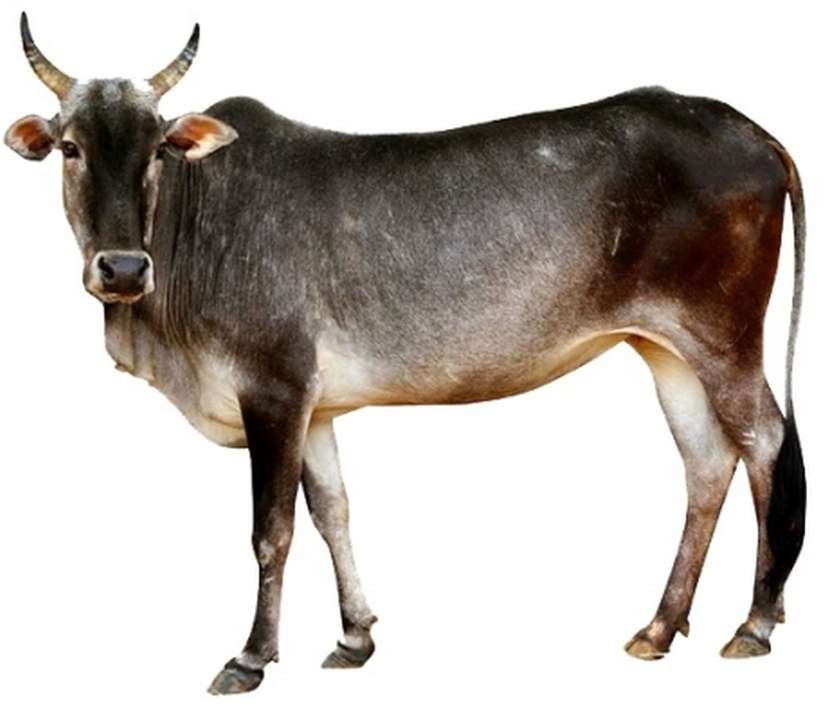
Kenkatha (Hindi:केन्काथा), also known as Kenwariya, is a breed of cattle native to the provinces of Bundelkhand in Uttar Pradesh, along the banks of the river Ken and the Vindhya ranges in Madhya Pradesh. Its breeding tract lies along the banks of river Ken in Panna, Chhatarpur and Tikamgarh districts of Madhya Pradesh and in the Lalitpur, Hamirpur and Banda districts of Uttar Pradesh.
This is a breed which is known for its ability to survive in rough environments. Due to the hilly nature of the region and poor feed resources, only animals that can cover long distances and have strong feet can thrive in this region. The bullocks are small but sturdy and are good for cultivation in rocky areas. The Kenkatha cow is seen to be good enough for meeting consumption requirements of small families.
Cows and the young stock are maintained only on grazing while bullocks are usually fed good quality straws. They are known for their ability to thrive on poor feed resources.
Characteristics:
Conservation Status – Depleting
There has been unrestricted interbreeding of the Kenkatha with other nondescript cattle and as a result, the breed has been diluted and its population is waning rapidly. Immediate steps are required to be taken in order to conserve and improve this indigenous breed of cattle.
References –
Kenkatha - Save Indian Cows
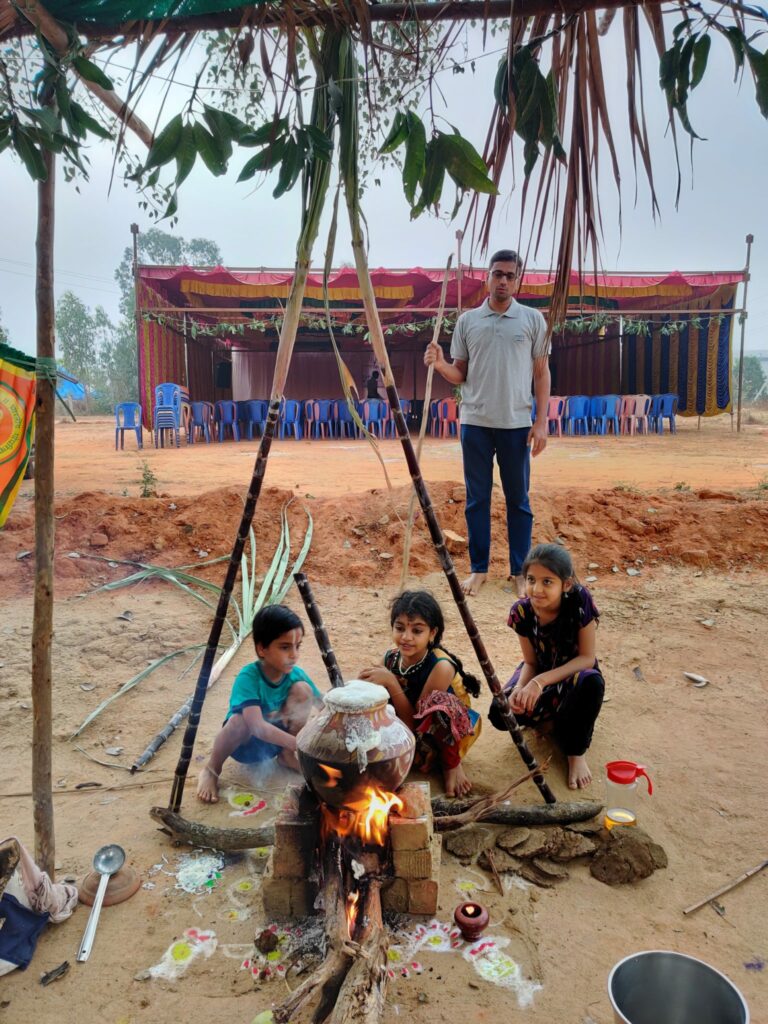
Nature of Activity:
Around 400 + energetic volunteers along with estimated 130 kids enthusiastically started event Cleaned Goshala by discussing among everyone the scientific importance of touching cow dung. The event was followed by Goshala tour with the explanation on Native breeds Cows/Bulls like Hallikar, Malanadu Gidda, Ongole, Kangeyam, Bargur, Gir, Verchur, Punganur, Kankrej etc. explained by Madhu, Sadashiva. In between volunteers were happy to share native/local breeds names/specifications belonging to their region. After that Volunteers had Breakfast through our token-based system.
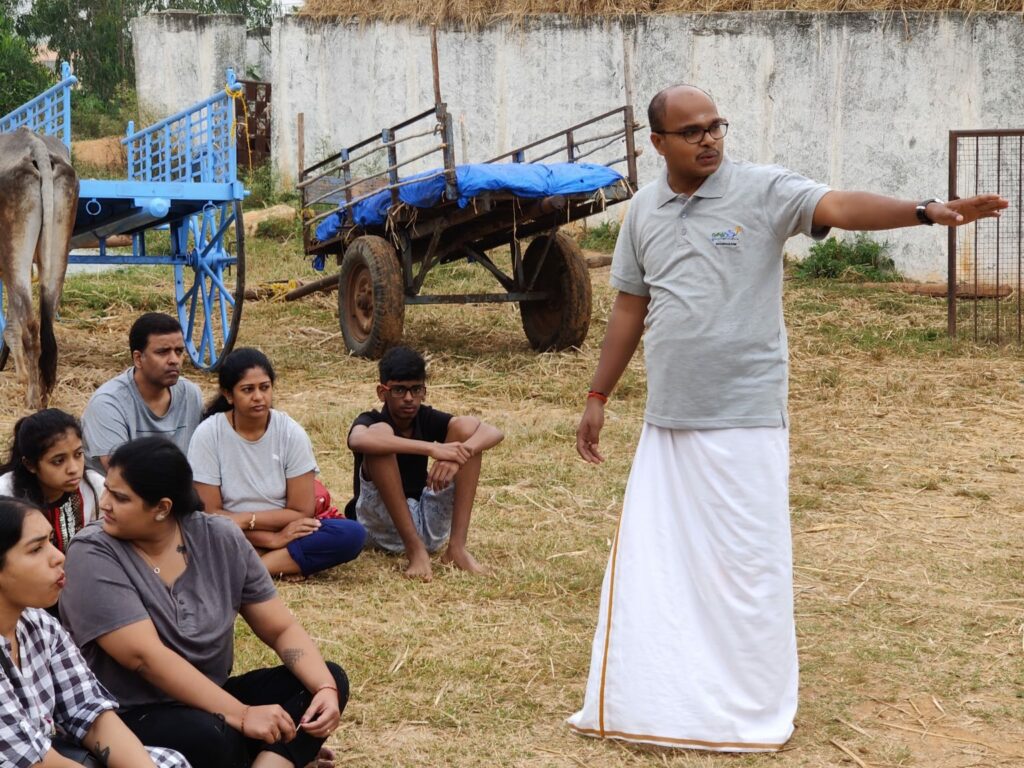
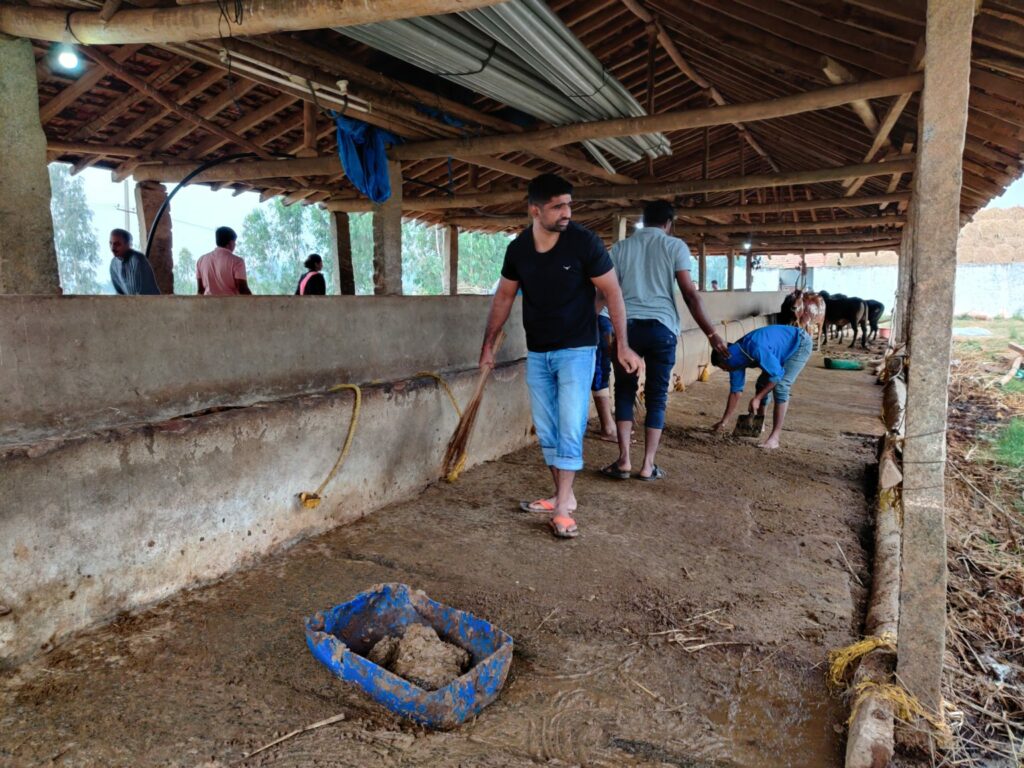
As part of Swachch Goshala, an expert showcased/demoed the preparation of Panchagavya therapy and importance. The event continued with an intellectual speech by chief guest on Cows role in natural farming and also a book release by a Professor for alternative to chemical farming on importance of native cows. About 100+ children participated in the Gou Sankranti event. During Pongal preparation, many of them participated in painting the pots with natural covering. Many of them took the pots back as a souvenir.
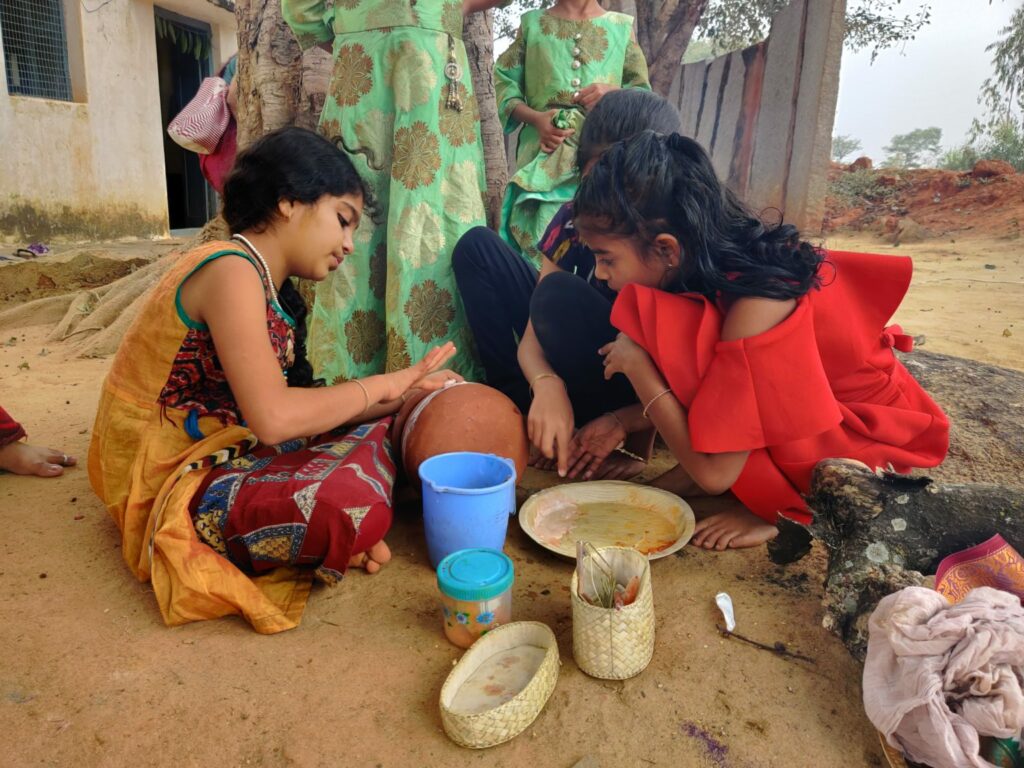
Post breakfast, the children were assembled in a place. All of them participated in making of Gomaya Ganesha. Post this they participated in painting activity of Krishna and Cows in the sheets that were given to them. At the end many parents showed interest in sending their children for a summer camp and GoPals will contact them for the same. Thanks to all parents for motivating their children to actively participate in the event. Event concluded collecting feedback and having delicious lunch prepared at the premises.
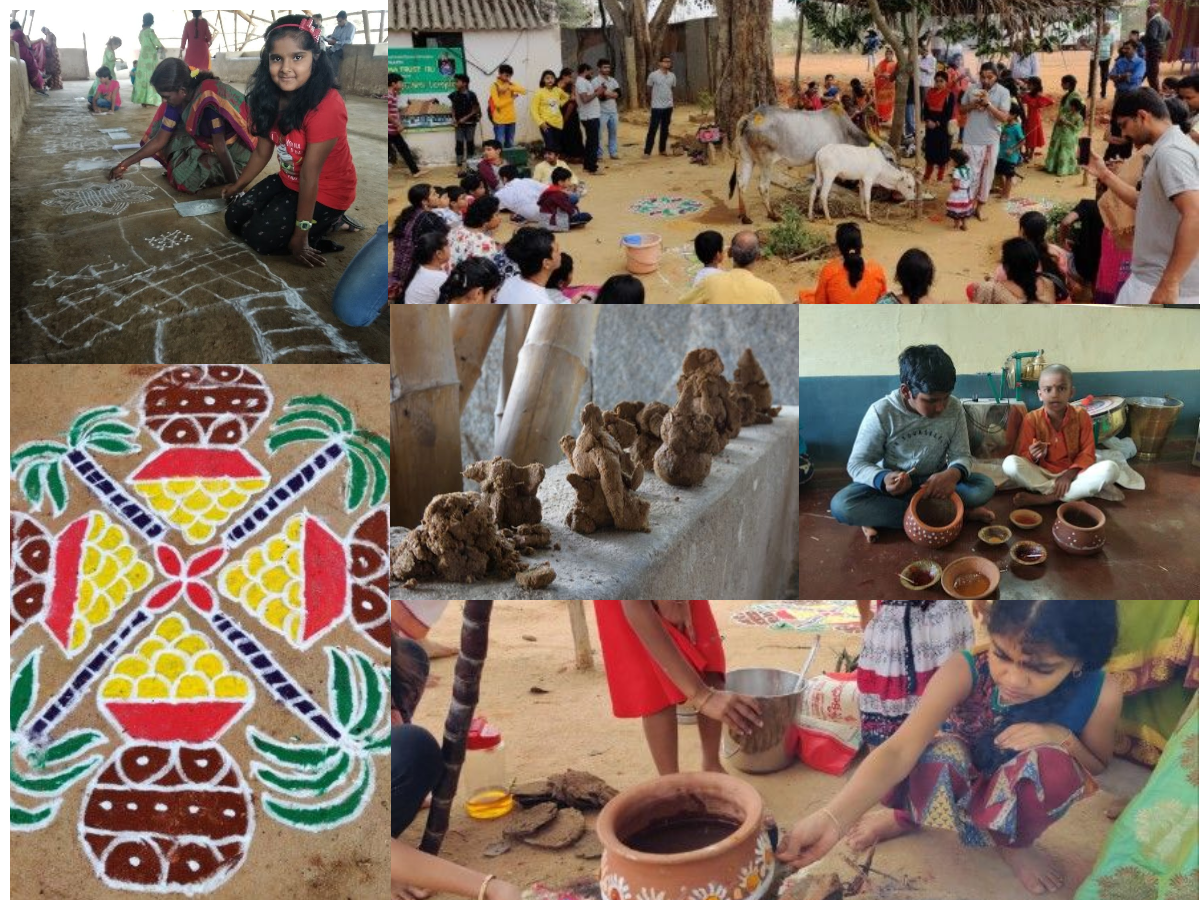
Knowledge sessions on Panchagavya and Organic Farming :
After all the fun-filled events, it was time for the intellectual session based on Desi Cows.
A Panchagvya Ghritha preparation session was taken up by Dr. Amit who explained in detail how to prepare Ghritha, which acts as medicine in many ailments, to the audience. The Ghritha is prepared with a mixture of Desi Cow Ghee, Curd, Cow Dung, Goumutra and then cooking up the mixture. The audience was intrigued by this demo and many questions were put up during the Q&A session.
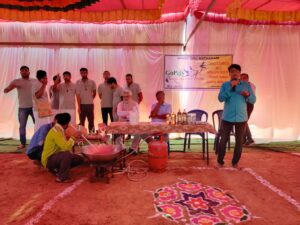
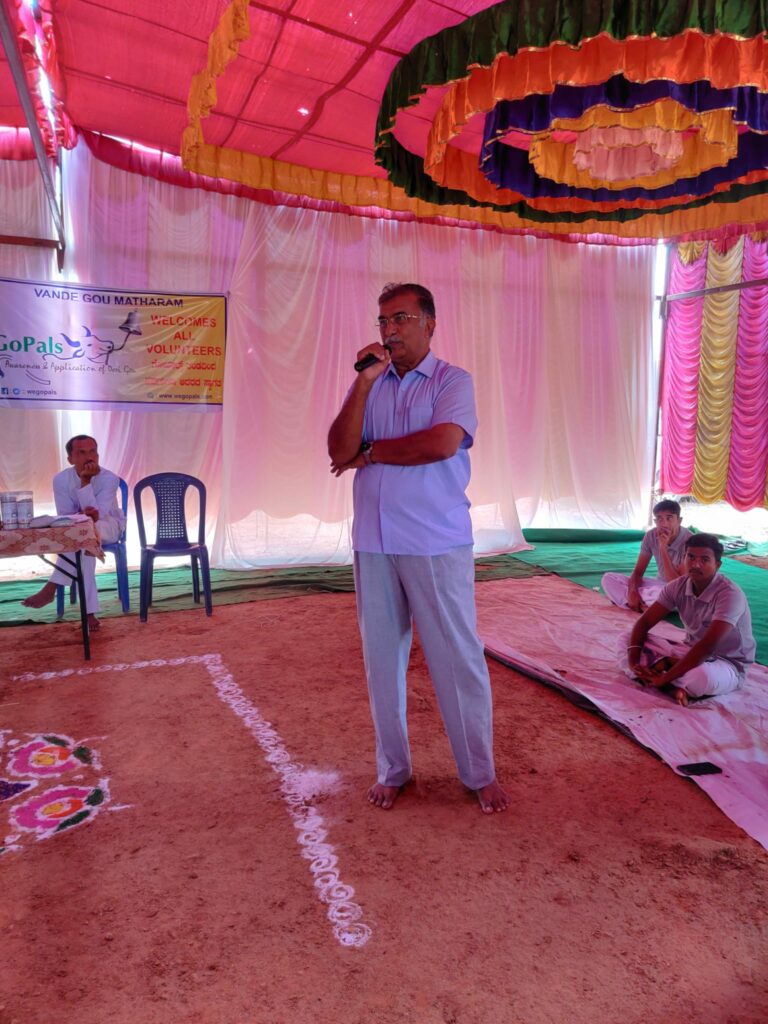
It was then the turn of Dr. Vadivel (Former Dean, Tamil Nadu Agriculture University) to address the audience with his knowledge on Panchagavya based organic farming and its yield. He addressed how Desi Cows are again revolutionizing the field of agriculture and how Panchagavya based farming is not less than any other method in terms of yield and quality if done in the right manner. This was a very useful session for farmers, kitchen garden hobbyists and budding farmers who were inspired to go with positivity in the field of farming.
After Dr. Vadivel, it was Dr. Gangadharan (Ayurvedacharya, MS Ramaiah Hospitals) to tell people the benefits of Ayurveda. He enlightened people on how to eat and what to eat in their daily lives to keep them healthy. His talk shed light on the ancient principles of Ayurveda and how deeply our traditions are connected to it in daily lives.
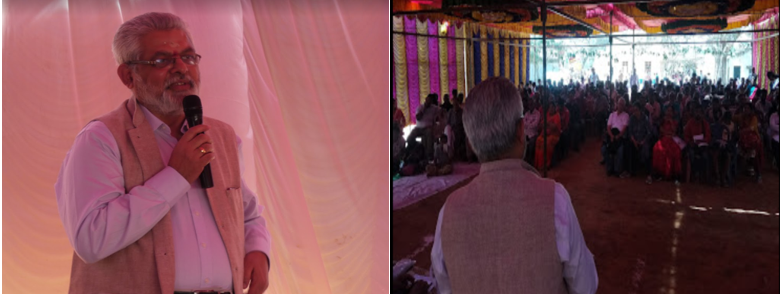
The audience felt honored in listening to these wonderful personalities.
It was then turn for Team GoPals to showcase their annual activities which was explained in brief by Mr. Srikanthan about the activities and initiatives that GoPals took during the year 2020.
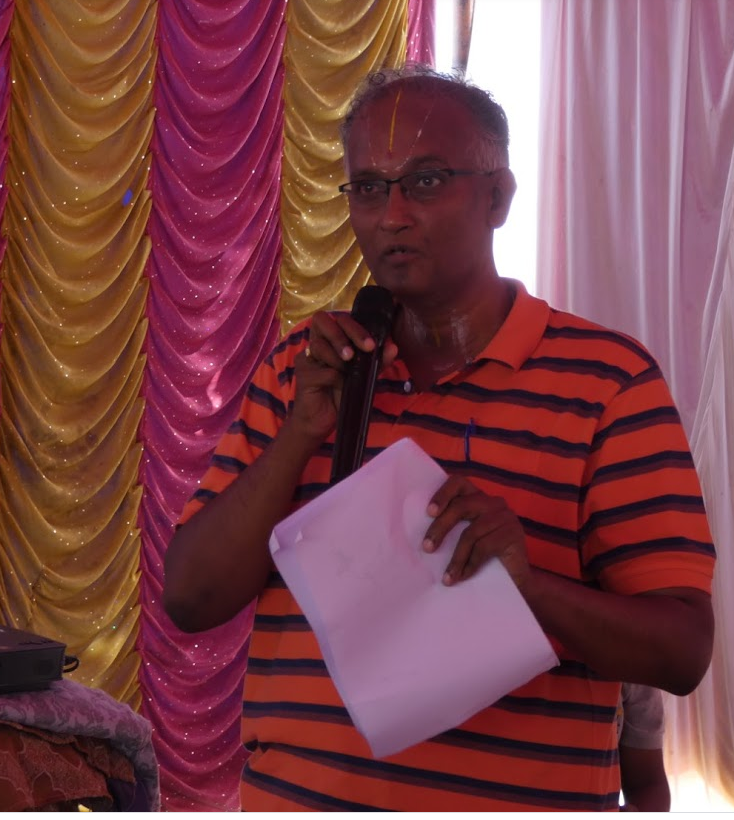
The big moment for the event was the launch of the book “Alternate to Chemical Farming” authored by Prof. Mallinath Hemadi (B. Sc. Agricultural Science, Kalaburgi), a practicing organic farmer. Team GoPals is deeply grateful to Shri Mallinath Hemadi to extend his collaboration for publishing this book along with Team GoPals. He has been a great mentor to our initiatives whose seemless support is now indispensable.
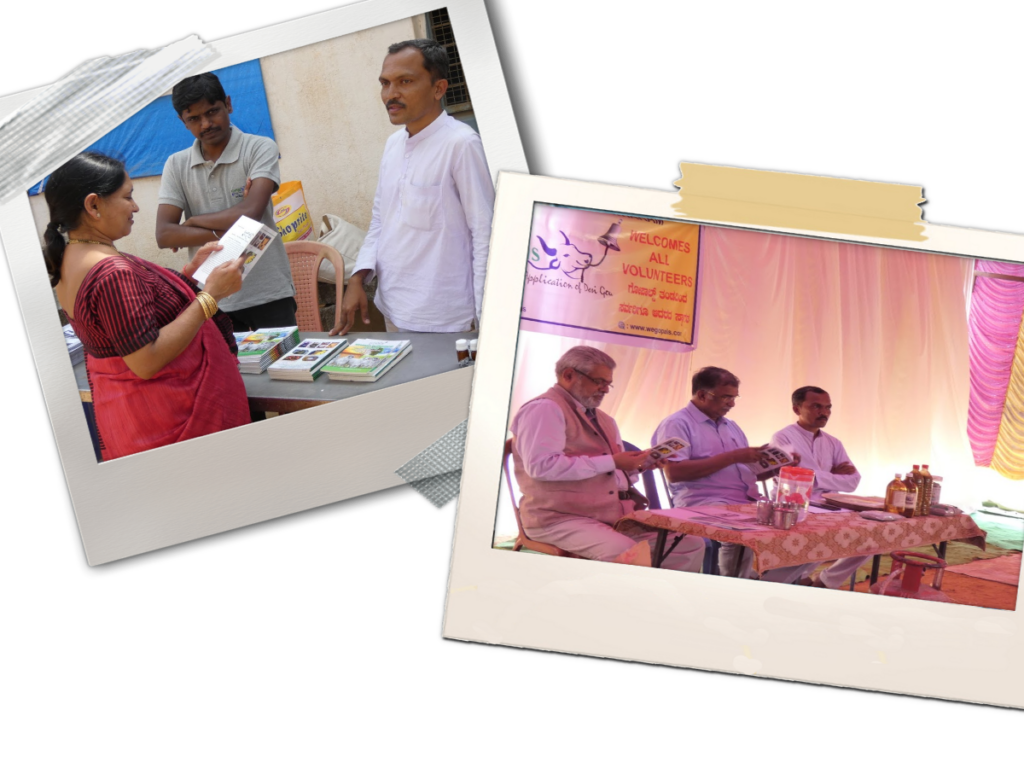
Kite Flying and Bullock Cart Ride added value to the event with lot of families enthusiastically participating in the sessions.
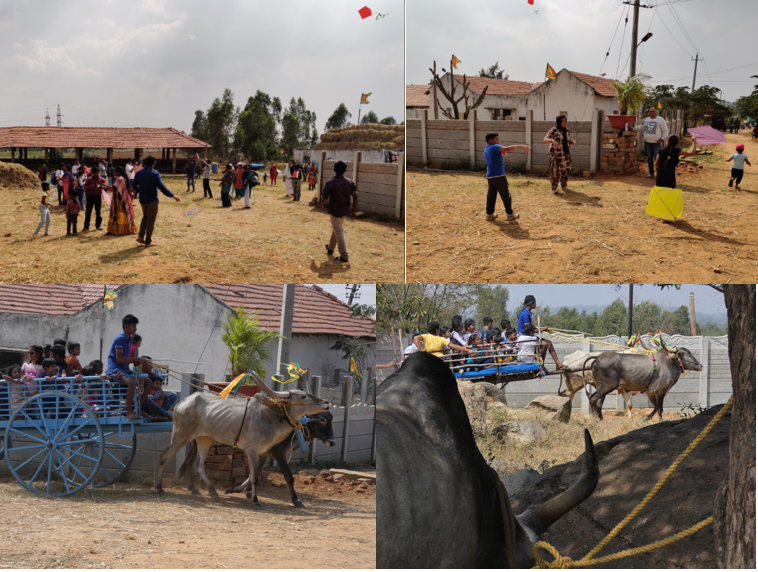
Detailed Report & Photos - Gou Sankranthi 2020, Bengaluru
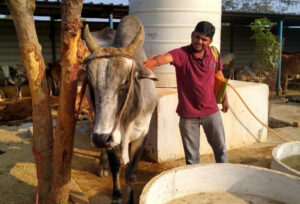
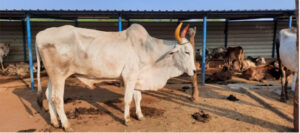
On the auspicious occasion of Ugadi, GoPals conducted its “Ugadi Kondattam with Nattu Madu )” event at Gokula Krishna Goshala, Uttukottai, Tamil Nadu. This event was to spread awareness about Indian native Cows and use of desi pasu in farming.
As usual people enthusiastically participated in Goshala Cleaning, Learning about different cow breeds and most importantly learned about different between native and jersey breeds.
The major highlight of this event was speech on ”Natural farming significance” by Thiru. Hemadri practicing natural farmer from chennai. He spoke about how cow dung helps in keeping soil fertile and help the microbes live and how keeping non-milking pasu are more beneficial for farming than milk giving pasu. Thiru Natarajan, Gokula Krishna Goshala explained about how he started this goshala and why desi cows need to be saved. He requested all volunteers to call desi cows as Pasu and not cow (which is used for Flesh/Meat).
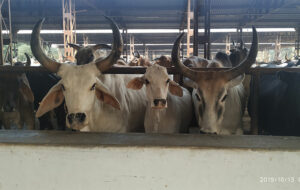
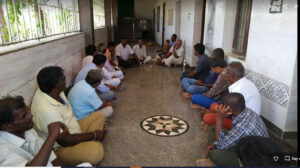
"Visit for more photos - Ugadi Kondattam with Nattu Madu, Chennai"
To keep yourself updated with Voice of Desi Cows - Subscribe to our newsletter.
Download the soft copy of Gou Vaarta Digital Magazine for first quarter 2020.






Headquarters:
GoPals Charitable Trust #78,
2nd Main Road, Kanaka Layout,
Banashankari 2nd Stage,
Bengaluru, Karnataka - 560070, INDIA.